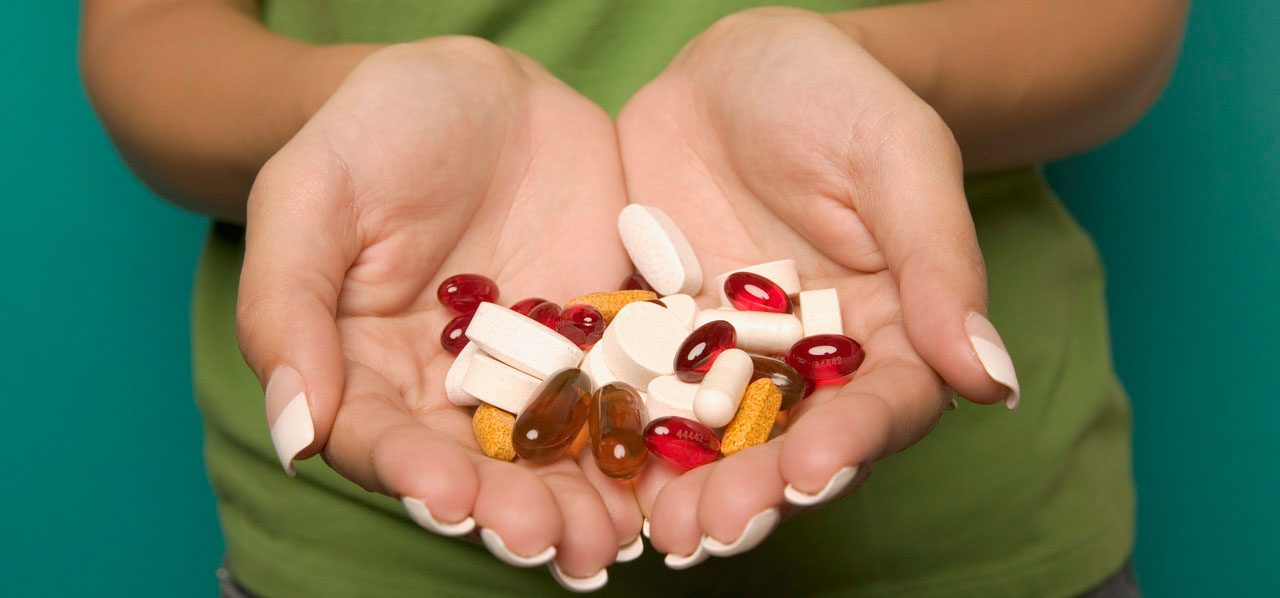Skip the Antibiotic If You Can

At least 18 bugs have evolved so they aren’t easily stopped by current meds. One way to stop them is to avoid taking antibiotics if possible.
Since 1928, when penicillin was first discovered, antibiotics have saved millions of lives. But if these drugs are used too often or misused, bacteria can evolve to the point where the drug no longer kills them. Every year, 35,000 people die in the United States from a drug-resistant bacterial infection.
Last fall, the Centers for Disease Control and Prevention (CDC) put the nation on notice that 18 bugs had become dangerous. Among the “urgent threats” the report listed C. diff, a bacterium that affects the GI tract; a drug-resistant form of the STD gonorrhea; and a group of bacteria that includes E. coli, which contaminates food.
YOU MIGHT ALSO LIKE: What Are Antibiotic-Resistant Bacteria?
Drug-resistant threats
On a list of “serious threats,” one step down in danger from the “urgent” list, the CDC includes drug-resistant Candida, Strep, and Salmonella and tuberculosis. Dozens of Candida species — a group of fungi — can produce everything from a mild case of thrush in the mouth or a vaginal yeast infection to a severe infection that, in 2017, killed 1,700 people. We have antifungal drugs to fight Candida but many strains have become resistant.
Resistance can develop rapidly; for example, in one study, a three-year-old battling P aeruginosa, which can infect the urinary tract, bone, joints, and respiratory tract, developed resistance to the antibiotic normally used when others fail, ceftolozane-tazobactam, in just 22 days.
This discovery came close after a European study reported that resistance to antibiotics prescribed for stomach infections had nearly doubled in 20 years.
The most vulnerable Americans are the first victims of the new superbugs. Up to 15 percent of hospital patients and 65 percent of nursing home residents harbor drug-resistant organisms, though they won’t all develop symptoms. Partly that is because of lax infection control in nursing homes: A Kaiser Health News analysis of four years of federal inspection records showed that 74 percent of nursing homes had been cited for lapses, but they rarely were fined. Nursing home residents may bring home infections from hospitals, and they are often sent back to hospitals when the infection is discovered. One new strategy for nursing homes is to bathe patients using the antimicrobial soap chlorhexidine, which has been shown to reduce infections. (It’s now used in hospital intensive care units).
What you can do
Take antibiotics (and antifungals) only when you really need them. The benefits of antibiotics properly outweigh the risks of side effects or resistance. Too many antibiotics, however, are prescribed unnecessarily or misused, threatening the use of these important drugs. About 30 percent of the prescriptions Americans get when they see a doctor outside a hospital are unnecessary or just won’t help, for example, if you have respiratory symptoms related to a virus. Antibiotics work only against bacteria, not viruses. A middle ear infection might be caused by either a bacterium or a virus, so you’d need to check before you took an antibiotic. That’s also true of a sinus infection or pneumonia. You might have allergies or asthma, neither of which an antibiotic can cure.
Take antibiotics a doctor gave you only for a specific problem. It might be tempting to take a leftover antibiotic in your drug cabinet just in case your current symptoms aren’t triggered by a virus. But you’d be putting yourself at risk. You could have an allergic reaction or develop a C. diff infection, which produces serious diarrhea. It has become so hard to treat C. diff, patients have been needing fecal transplants. In 2017, nearly 13,000 Americans died from a C diff infection, the CDC reports.
For the same reason, you shouldn’t take someone else’s prescription. We all need to finish up any prescriptions as instructed by our doctors. You might feel better after a few doses and decide it’s better not to put your body through more medication. But if any bacteria remain, that bacteria will be more resistant and harder to beat next time.
You can also help by buying meat from animals that haven’t been fed antibiotics.
Updated:
December 30, 2020
Reviewed By:
Janet O’Dell, RN